When businesses experience an unexpected HVAC breakdown, immediate and reliable AC repair services become critical. Facilities managers must evaluate repair companies with care, balancing cost, expertise, and prompt response. A superficial review can lead to costly mistakes because HVAC systems are complex and constantly evolving with new standards and technologies. Understanding key factors, technician expertise, transparent pricing, response time, customer reviews, warranty offers, range of services, local support, and credentials, allows decision makers to select a repair partner that minimizes downtime, reduces energy consumption, and extends equipment life. With long-standing reputations like Ohio Heating’s since 1999, facilities managers can safeguard operations by carefully examining these critical aspects.
What Are the Most Important Factors to Consider When Reviewing AC Repair Services?
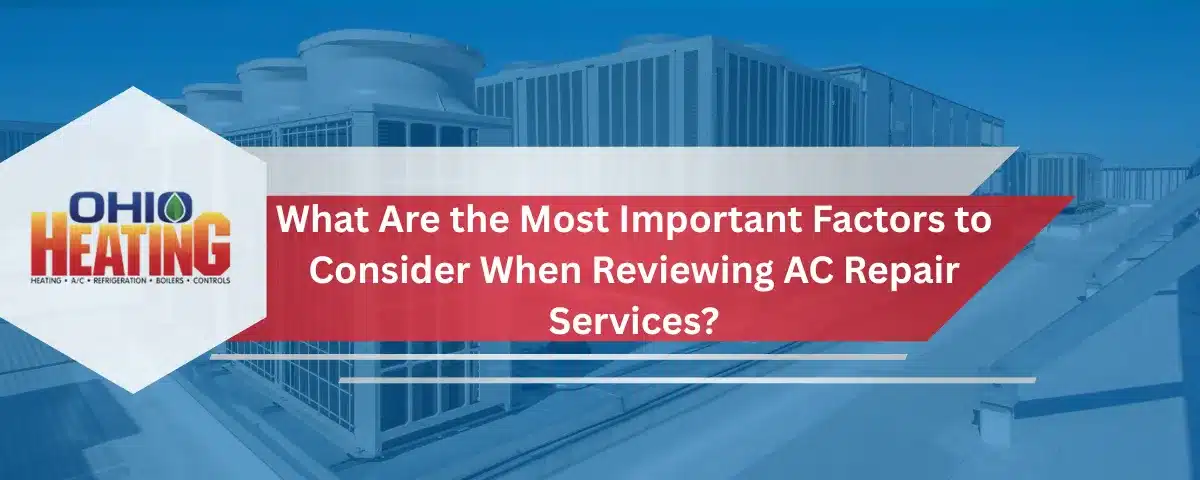
Evaluating AC repair services requires a multifaceted approach. Key elements include:
• Technician Training and Certification: Ensure the provider employs technicians with recognized certifications (e.g., NATE) and the ability to handle both legacy and modern systems. • Transparent Pricing: Upfront, itemized estimates help avoid hidden fees and allow for fair comparisons. • Emergency Response: Fast repair response is vital in preventing additional damage, such as water damage from failing condensers, and minimizing operational interruptions. • Customer Reviews and Reputation: Consistent positive feedback and recommendations from both online sources and local referrals indicate reliable service. A structured review process incorporating these elements helps managers select vendors who meet technical requirements, manage long-term costs, and adhere to Energy Star and environmentally friendly practices.
How Does Technician Expertise Impact AC Repair Quality?
Technician expertise is crucial for high-quality AC repairs. Skilled technicians can diagnose problems quickly and address underlying issues effectively. Certifications like NATE signify that technicians are ready to handle complex issues, from faulty compressors to ductwork inefficiencies and maintain system efficiency to control energy consumption. Their practical knowledge also allows them to provide energy-saving recommendations, optimize air handler performance, and advise on upgrades like advanced air purifiers. Custom repair plans and detailed service reports foster trust and help prevent recurring problems, which ultimately reduces long-term repair costs.
Why Is Transparent Pricing Essential for Choosing AC Repair Services?
Transparent pricing builds trust and aids in budgeting. Facilities managers should request detailed, written estimates that list labor, parts, diagnostic fees, and any additional charges. This clarity is especially important during emergencies when quick decisions are needed. An upfront, detailed quote allows for easy auditing against industry benchmarks and prevents miscommunication. Providers with clear pricing practices not only avoid hidden fees but also tend to build long-term relationships by fostering a reputation for integrity, important in today’s competitive
market where both energy efficiency and cost control are essential.
How Does Response Time Affect Your AC Repair Experience?
Quick response times are critical to minimizing downtime and preventing secondary damage. In commercial settings where consistent climate control is vital, a rapid repair service prevents further system degradation and additional costs. Many reputable companies guarantee arrival within a set time frame (often within two hours during business hours), ensuring that emergencies disrupt operations as little as possible. Fast dispatch indicates a well-organized team and reliable service, which not only preserves system efficiency but also reduces overall energy consumption over time.
How Can Customer Reviews and Reputation Guide Your AC Repair Choice?
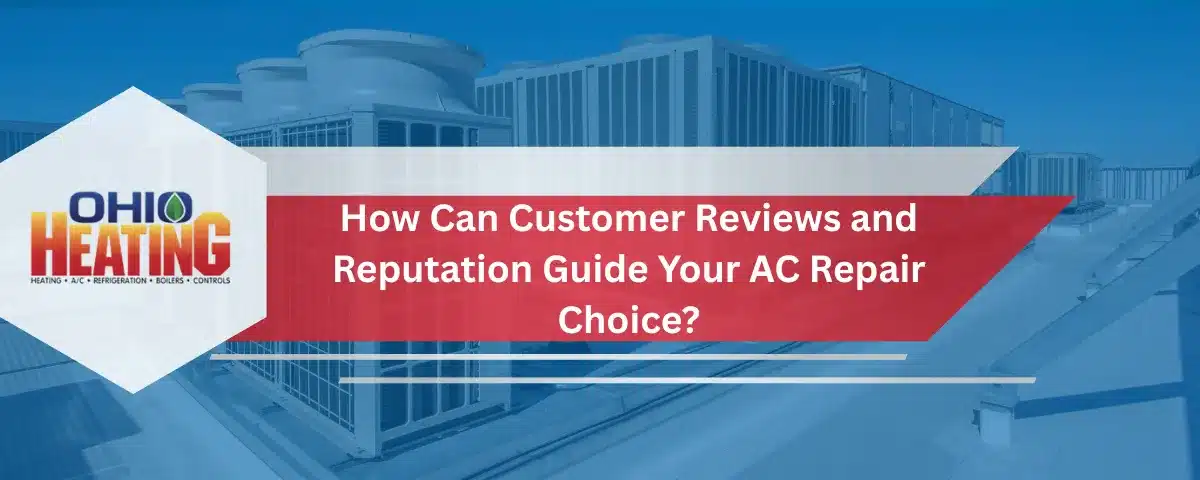
Customer reviews provide real-world insights into a provider’s reliability and service quality. Online reviews, local business ratings, and testimonials offer concrete examples of how promptly and efficiently issues are resolved. Key points to look for include:
• Repeated praise for technician expertise and quick response • Consistency in transparent pricing and follow-up support • Specific examples of successful repairs and energy efficiency improvements
A strong local and online reputation often reflects adherence to industry best practices, such as extended warranties and proactive maintenance, reducing future risks and ensuring consistent HVAC performance.
What Should You Look for in Customer Testimonials and Ratings?
Effective testimonials detail the repair process, including:
• How issues were diagnosed and resolved • The tools and methods used (for example, advanced diagnostic equipment for refrigerant leaks) • Confirmation that the final bill closely matched the initial estimate
These detailed accounts, especially when paired with quantitative ratings (such as five-star reviews), help facilities managers distinguish high-quality providers from those with inconsistent service.
How Do Local Reputation and Community Feedback Influence Decision-Making?
Local reputation is critical because providers familiar with regional conditions, such as high humidity or extreme temperatures, can tailor repairs accordingly. Positive local feedback often comes from peer recommendations and participation in community trade events. Such providers typically have:
• A proven record of prompt service and effective problem resolution • Stronger follow-up support given their geographic proximity • Better access to quality parts via established local supplier relationships
These factors collectively ensure minimal service disruption and higher overall reliability.
What Role Does Service Warranty and Satisfaction Guarantee Play in AC Repairs?
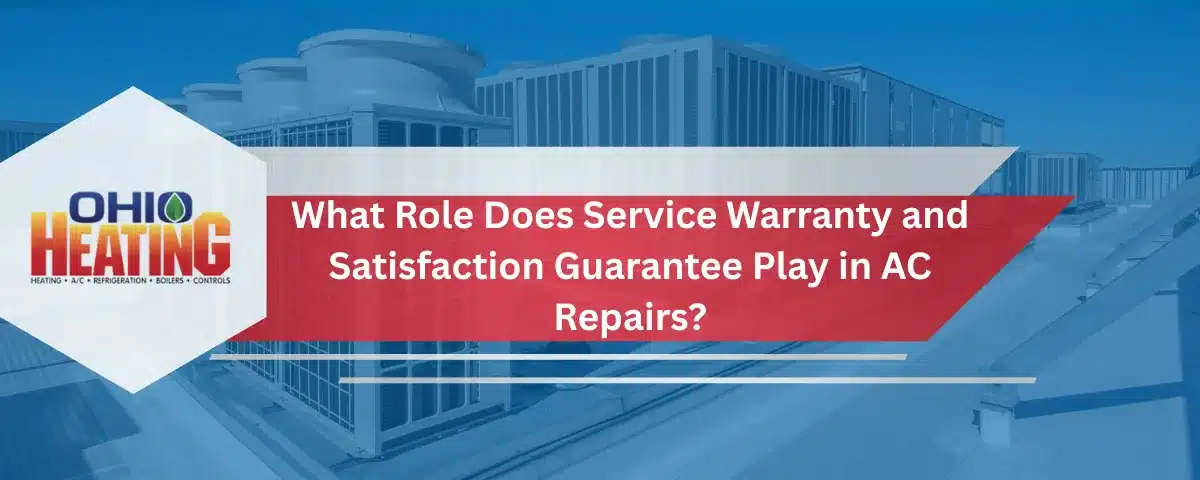
A robust warranty and satisfaction guarantee signal confidence in repair quality. Comprehensive warranties cover repeat repairs or replacements if issues recur shortly after service. They also act as a quality control measure, demonstrating that the provider adheres to rigorous standards. Satisfaction guarantees might offer benefits like free follow-up visits if performance benchmarks are not met. Such terms provide financial protection for facilities managers and lower the risk of unexpected repair costs while ensuring long-term system efficiency.
How Do Repair Warranties Protect Your Investment?
Repair warranties minimize unforeseen expenses by ensuring that any post-repair issues are fixed at no extra cost. For example, a six-month warranty on labor and a 12-month warranty on parts can be crucial in commercial settings, where repeated outages can severely affect operations. By offering comprehensive follow-ups and quality assurance, strong warranties help facilities managers plan maintenance budgets confidently and avoid recurring failures that lead to higher long-term costs.
What Are Common Customer Satisfaction Guarantees Offered by AC Repair Companies?
Common satisfaction guarantees include:
• Full refunds if the repair does not meet agreed standards • Free follow-up visits if the problem recurs within a specified time frame • Transparent service reports that detail the repair work and performance outcomes
These guarantees not only promote accountability but also reinforce customer trust by ensuring that the repair services consistently meet performance benchmarks.
How Important Is the Range of Services Offered by AC Repair Providers?
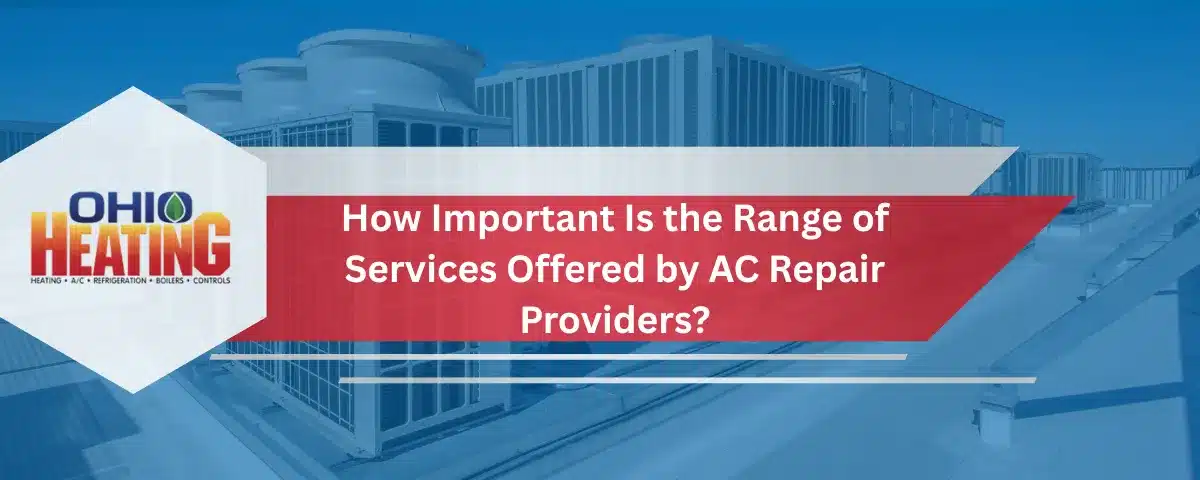
The range of services an AC repair company offers is critical to efficiently manage all aspects of HVAC maintenance. Providers should offer:
• Emergency repairs combined with routine maintenance and diagnostic inspections • Preventive services such as filter replacements, refrigerant checks, and duct cleaning • System upgrades and retrofits to improve energy efficiency
A comprehensive service offering simplifies vendor management and ensures that all aspects of an HVAC system’s lifecycle are addressed, ultimately reducing both operational disruptions and long-term costs.
Why Should You Consider Companies Offering Both Repair and Maintenance Plans?
Companies that offer integrated repair and maintenance plans provide a unified approach to system care. This integration leads to:
• Proactive maintenance that detects issues before they escalate • Fixed pricing that aids in financial predictability and budgeting • Value-added services like energy audits and priority emergency repairs
Such comprehensive packages reduce the administrative burden on facilities managers while ensuring continuous, efficient operation of HVAC systems.
How Does Expertise in Different AC Brands and Models Affect Service Quality?
Expertise across various AC brands is crucial due to the diverse nature of HVAC systems in commercial settings. Providers with cross-brand expertise:
• Diagnose and repair issues more accurately • Recommend upgrades or adjustments that improve energy efficiency • Maintain an inventory of spare parts that speeds up repairs
This versatility not only improves immediate repair outcomes but also enhances long-term system reliability and reduces maintenance costs.
What Are the Benefits of Choosing a Local AC Repair Service Provider?
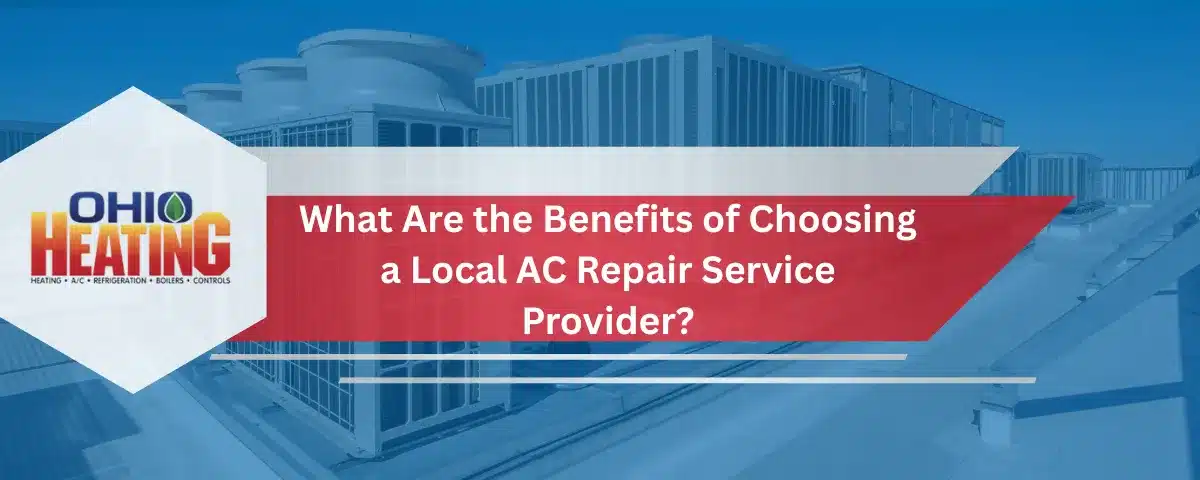
Local AC repair service providers offer significant benefits through their regional expertise and proximity. They are better equipped to handle local climate challenges and regulatory requirements. Key advantages include:
• Faster response times due to nearby technicians • Personalized service and flexible scheduling tailored to regional needs • Stronger local reputation supported by community feedback and referrals
Local providers often have deeper supplier networks and more robust relationships, ensuring prompt availability of quality parts and sustained service support.
How Does Local Knowledge Improve AC Repair Outcomes?
Local providers understand regional conditions, like high humidity or specific building designs, which allows them to tailor repair and maintenance practices effectively. This familiarity leads to:
• Quicker, more accurate diagnostics • Repairs that are well-adapted to local climate challenges • Preventive maintenance strategies that reduce future breakdowns
Such insights, drawn from experience within the community, lead to improved reliability and energy efficiency.
What Are the Advantages of Rapid Response From Local Technicians?
Rapid response is a major benefit of local service. Local technicians can often reach a facility much faster than distant providers, which:
• Minimizes business interruptions • Reduces risks of secondary damages (e.g., water damage) • Enhances overall customer satisfaction by maintaining operational continuity
Technology-driven scheduling further supports rapid response, ensuring that service is efficient and well-coordinated.
How Can You Verify the Credentials and Certifications of AC Repair Technicians?
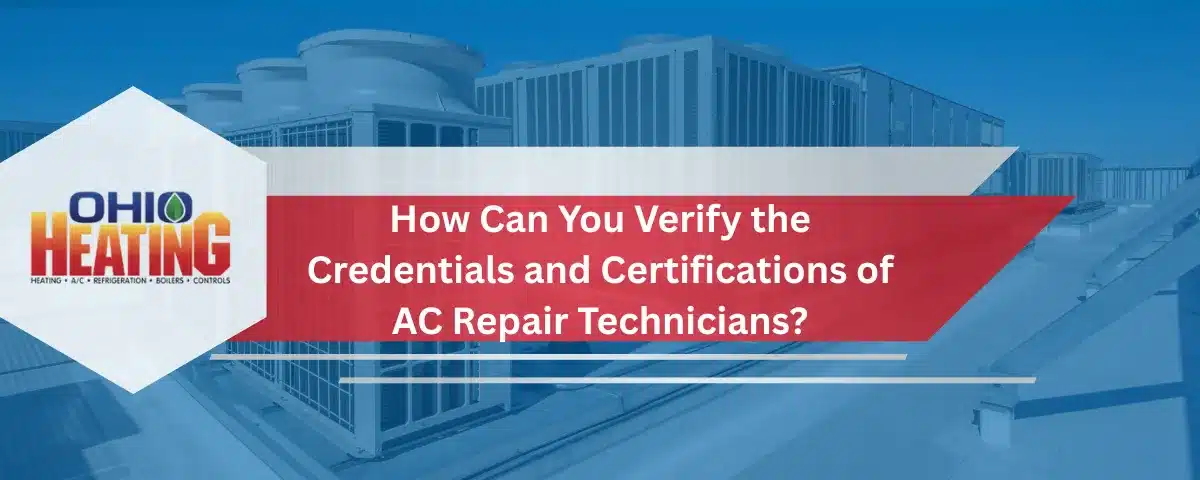
Verifying technician credentials is essential to ensure reliable repairs. Facilities managers should demand proof of certification (e.g., NATE, EPA 608) and inquire about ongoing training programs. Providers that invest in continuous education are more likely to deliver high-quality, efficient repairs using the latest HVAC technologies and safety practices.
What Certifications Should You Expect From Qualified AC Repair Technicians?
Qualified technicians typically hold certifications such as:
• North American Technician Excellence (NATE) • HVAC Excellence and Refrigeration Service Engineers Society (RSES) • Manufacturer-specific training from brands like Carrier, Trane, and Lennox • EPA 608 for handling refrigerants
These certifications indicate adherence to safety protocols and best practices, ensuring effective repairs and long-term system performance.
How Do Certifications Impact Repair Reliability and Safety?
Certifications guarantee that technicians have met rigorous standards for repair quality and safety. They ensure that repairs are carried out with precision, using proper protocols that reduce the risk of accidents or equipment damage. Ultimately, certified technicians help lower maintenance costs and boost energy efficiency by ensuring that HVAC systems operate at optimal performance levels.
What Questions Should You Ask Before Hiring an AC Repair Service?
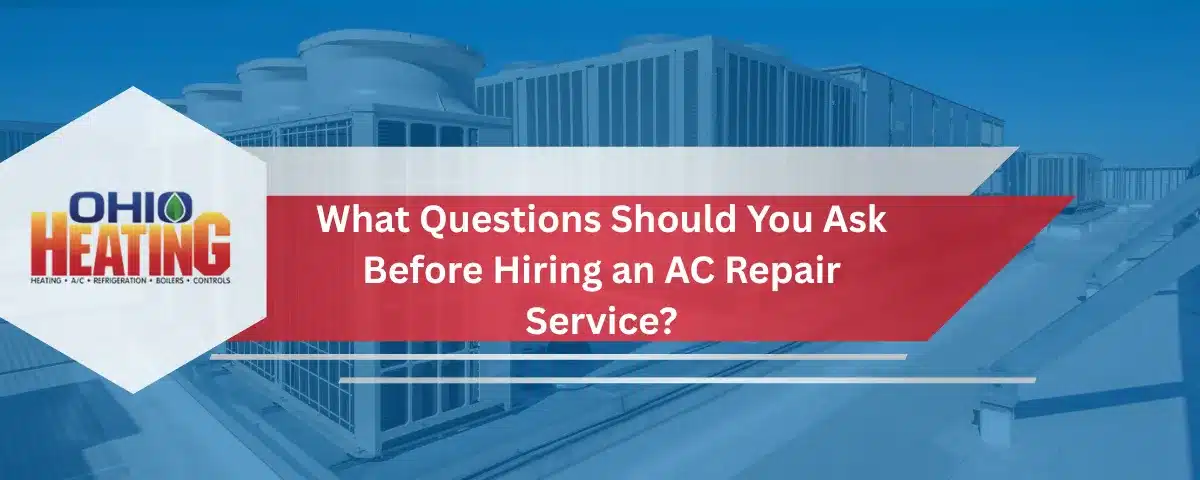
Before engaging a repair service, facilities managers should prepare a set of questions covering:
• The technician’s experience and certifications • Details of pricing structures and any potential hidden fees • Response times for emergencies and routine service • Warranty and follow-up support policies • Specific case studies or testimonials from similar commercial clients
These questions help reveal the provider’s strengths and any potential shortcomings, ensuring a well-informed decision.
How to Request Detailed Estimates and Service Explanations?
When requesting estimates, ask for a written, itemized quote breaking down:
• Labor, parts, and diagnostic fees • Any additional surcharges • An explanation of the repair process, from initial diagnosis to final repairs
A walkthrough of the estimate helps clarify each cost element and ensures there are no hidden charges.
What Are Key Questions About Repair Timelines and Parts Used?
Key questions include:
• How soon a technician can be dispatched during an emergency • Typical repair times for similar AC issues • Whether OEM or aftermarket parts are used, including warranty details on parts
Understanding these factors helps set realistic expectations on repair timelines and overall system restoration while ensuring quality parts are used.
Frequently Asked Questions
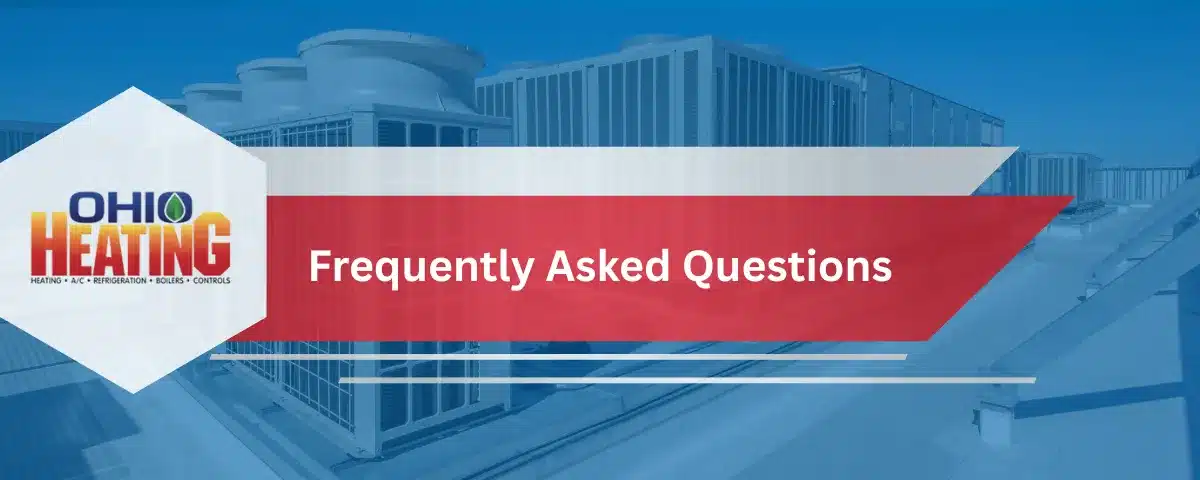
Q: How do I determine if an AC repair provider’s technician is qualified for commercial HVAC systems? A: Look for technicians with certifications such as NATE or EPA 608. Reviews and case studies of past work provide additional insights.
Q: Can transparent pricing really help reduce overall repair costs? A: Yes, transparent pricing prevents unexpected fees by providing detailed, upfront estimates for labor, parts, and service charges.
Q: What is the typical turnaround time for emergency AC repairs from local providers? A: Many local providers guarantee a response within two hours during business hours, minimizing downtime.
Q: How does routine maintenance benefit the longevity and efficiency of an HVAC system? A: Regular maintenance prevents minor issues from escalating, enhancing energy efficiency and extending equipment lifespan.
Q: Why is it important to choose a provider that offers both repair and maintenance services? A: Integrated services simplify management, create predictable schedules, and provide robust warranty support.
Q: How can I verify the local reputation of an AC repair company? A: Check online reviews, customer testimonials, and ask for recommendations from other facilities managers.
Q: What should I ask about parts quality when discussing repairs with a provider? A: Inquire if OEM parts are used, ensure they come with warranties, and confirm that quality control measures are in place.
Final Thoughts
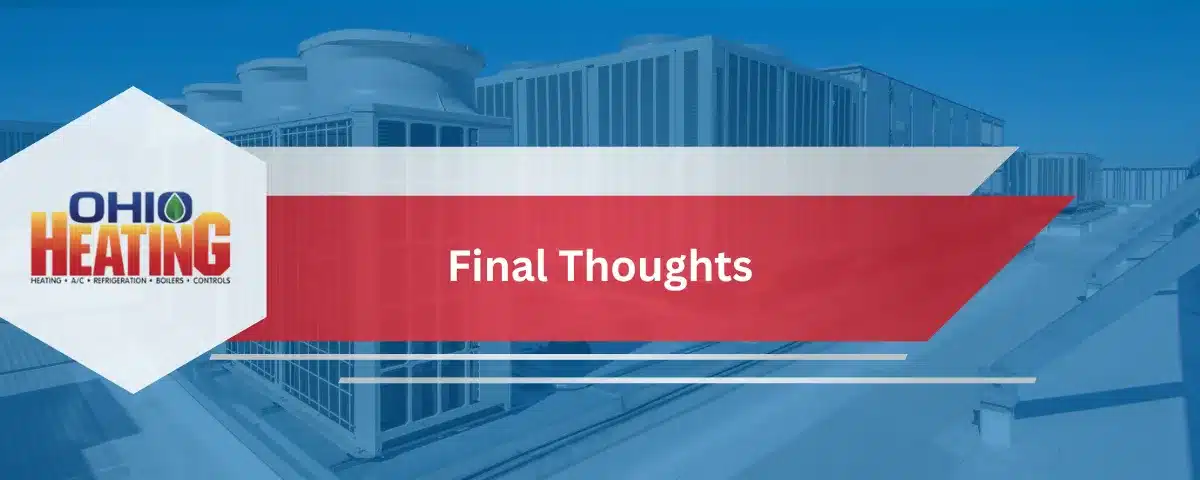
Assessing AC repair services requires a structured, multifaceted approach. By evaluating technician expertise, transparent pricing, rapid emergency response, customer reviews, comprehensive warranties, and the breadth of services offered, facilities managers can minimize downtime and reduce long-term operational costs. Local reputation and proven credentials further support reliable service, ensuring that HVAC systems continue to operate efficiently while reducing energy consumption. An informed choice not only protects your investment but also enhances indoor air quality and overall business performance.
